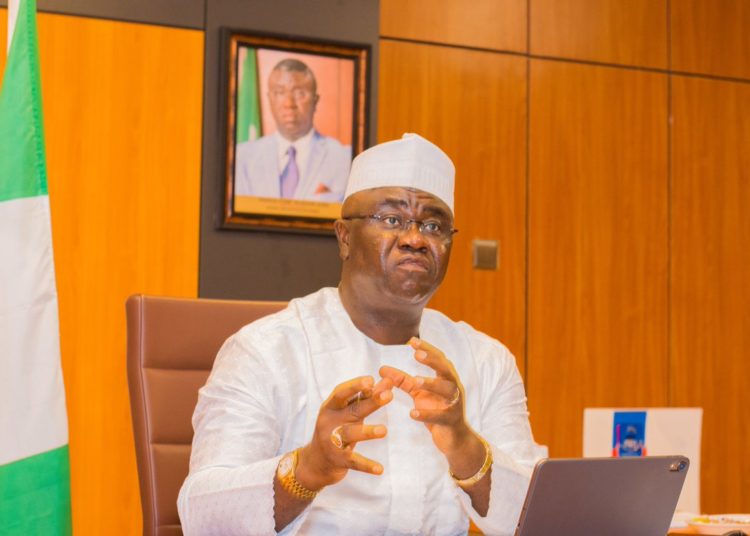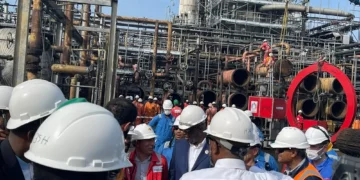Minister of state, budget and national planning, Prince Clem Agba has expressed concern over the difficulty of most Nigerian farmers to get farm produce to the market, a major factor he said was responsible for food insecurity in the country.
The minister also said lack of awareness about healthy and nutritious food is responsible for poor feeding culture in Nigeria, saying education, not money is required by most Nigerians to eat nutritious and sustainable diets.
Prince Agba said only about 4000 out of every 10,000-farm produce manage to get to the market in Nigeria. He said governments at all levels, especially sub-nationals are required to develop an effective food systems transformation partway for easy access for farm produce.
Agba insisted that the state governors are doing a lot to increasing the level of poverty in the country if they do not create access to the market.
He made the remarks at a donor/partners meeting on the implementation of the food systems transformation pathways in Nigeria in Abuja yesterday.
The Food and Agriculture Organisation (FAO) had projected that about 25.3 million people in Nigeria would face acute food insecurity during the June to August 2023 lean season.
A quarterly report released by the global organisation shows that the figure projected is higher than the 19.45 million forecasts in 2022. This is attributed to the huge food deficit due to the neglect of agricultural production as well as other areas of food eco system for many decades.
The budget and planning minister said government has commenced an integrated approach to solving the challenges of the food eco systems.
The minister said government is committed to providing access to safe, nutritious, affordable and sustainable diets, which is critical to addressing the complexities of malnutrition and food insecurity in Nigeria.
In agreement with other stakeholders, Agba said “that is particularly critical to attaining both economic and human capital development and thus requires breaking down silos among different actors in the food and nutrition sphere while adopting a well-coordinated multi-sectoral approach.”
In a bid to ensure improvement in the food and nutrition situation in the country, Agba said the federal government has adopted a strategic approach towards ensuring that successive governments in Nigeria continue to prioritize food and nutrition interventions in the nation’s development agenda.
Agba said since the initiative on food systems transformation started, the government has garnered a lot of support from donors and development partners. He did not disclose the value.
Representatives of the donor partners appreciated the support for ecosystem transformation in Nigeria.
They however agreed that to have increased production, the challenge of high post-harvest cost must be dealt with in union with local and foreign partners for Nigeria to achieve food security.
In her presentation on the overview of the food systems in Nigeria, head, food & nutrition division at the ministry, Nduka Chito Nelson said multi stakeholder efforts are needed at every stage, including government and donors funds to achieve the desired goal.
Earlier, she mentioned lack of political while, inadequate funding, farmer/here’s crisis/ climate change, lack of infrastructure and technological know how as some of the key challenges to the food in Nigeria.











